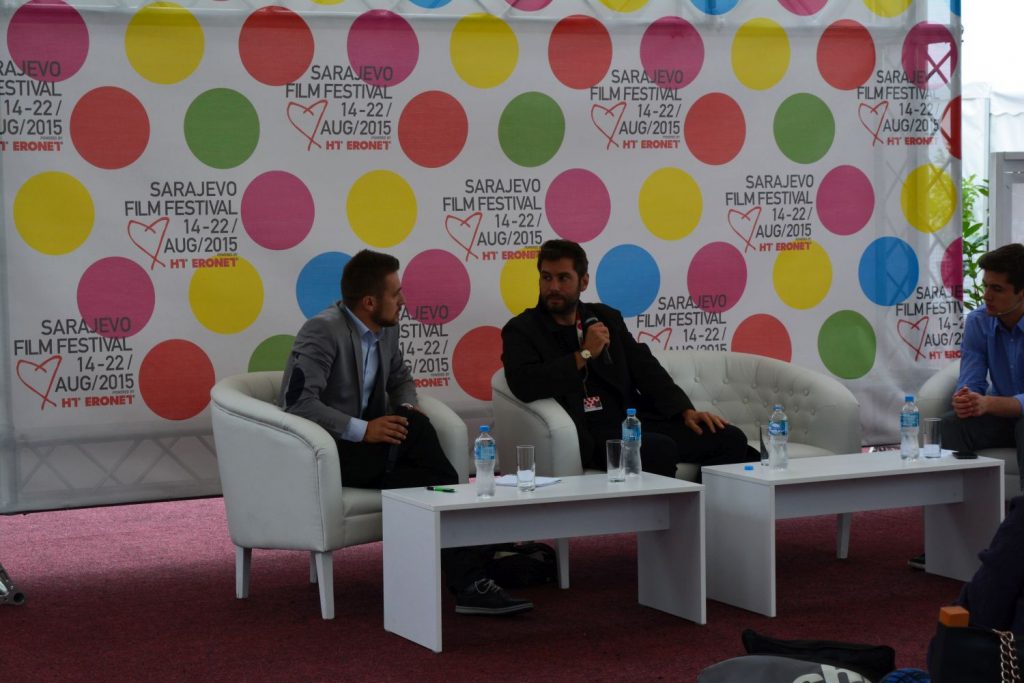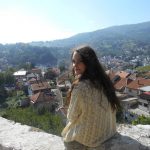
Flotel Europa, a documentary directed by Vladimir Tomić, won the Special Jury Mention at the Sarajevo Film Festival on the 22 August 2015
In 1992, Vladimir Tomić was twelve years old when the war in Bosnia-Herzegovina started. He fled Sarajevo with his mother and older brother and sought asylum in Denmark. With refugee camps completely full, the Danish Red Cross began housing refugees on an enormous ship called Flotel Europa, moored in the port of Copenhagen. Young Vladimir was excited about his new floating house, which became a temporary home for about 1,000 refugees from the former Yugoslavia, while they waited for decisions on their asylum applications.
Vladimir Tomić is now an award-winning director living in Copenhagen. He presented his documentary, Flotel Europa, at the Sarajevo Film Festival and received the Special Jury Mention at the closing ceremony on 22 August 2015. Flotel Europa also received the Jury’s Special Mention at the Berlinale Festival, the award for Best Balkan documentary at the Dokufest in Kosovo and the Best Documentary Award at the International Documentary Film Festival in Belgrade.
Flotel Europa is entirely based on footage shot by refugees living on the ship. Families used to send VHS messages and footage of their on-board life to their relatives back home: people in the communal kitchen and laundry room, the TV room, dance performances, big celebrations and people playing music in their small windowless cabins. Drawing on his memories from the two years he lived on-board, the director transforms these images with an autobiographical narrative.
The idea of making a film about Bosnian refugees in Denmark was on Vladimir’s mind for a long time. He conducted interviews with refugees in Copenhagen and together with producer, Selma Jusufbegović, started collecting footage filmed on the Flotel Europa in the 1990s. According to the director, refugees “filmed this material to send in humanitarian convoys”, which also took food to their families in Bosnia. “Some people filmed a lot. There were hundreds of hours of material we had to digitalize.”
The hours of selected material were edited by Srdjan Keča, director of A Letter to Dad, another documentary about the war in the former Yugoslavia. “There was poetry in the images,” Vladimir observes. “You didn’t even need any words for it.”
Yet Vladimir’s narrative is rich with personal insights of life on Flotel Europa. “We didn’t have permission to work or go to school,” the director recalls. “We were allowed to go to the city but had nothing to do there – we had no money to spend.” The film shows Vladimir growing up, making new friends and falling in love, while his older friends are playing rock and dating Danish girls. “They called them passport girls,” he says in the documentary. Young Vladimir falls in love with Melisa, who also lived on-board and danced in folklore performances. “The documentary went to Berlin and Melisa’s picture was everywhere,” Vladimir says. “My producer said maybe we should call her. We gave her the film and it was one of the longest hours of my life,” he remembers with a smile. He was relieved when Melisa told him she liked the documentary and felt honored by it. “She said it was a great thing to her.”
The funny coming-of-age stories of falling in love contrast with a sense of growing nationalism and conflict between the Serbian, Bosniak and Croatian refugees on-board Flotel Europa. “There were 1,000 people, so of course there were some tensions,” Vladimir remembers, “but there were a lot of good people there.”
He tells the story of a man he met on-board, who was drafted by both the Bosnian and the Serb forces, and “had to flee not to shoot himself.” Vladimir laughs at the absurdity, adding, “This is my third film about the war in Bosnia, but this is the first film I use humor. I got older and have a new perspective [on the war] – it can be tragicomic.”
Flotel Europa is a metaphor for the split in identity and the instability and uncertainty of life as a refugee. Living in limbo, the refugees were floating offshore and had yet to be accepted on Danish soil. Today, the director still struggles with identity issues. He often feels “alienized”. He says, “I feel like everybody is my people. Like I belong to nowhere and everywhere at the same time.”






